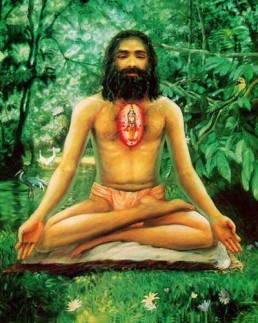Patanjali Yogasutra Introduction
Part 1 – Samādhi-pāda – Yoga and its Aims
1.1
1.2
1.3
1.4
1.5
1.6
1.7
1.8
1.9
1.10
1.11
1.12
1.13
1.14
1.15
1.16
1.17
1.18
1.19
1.20
1.21
1.22
1.23
1.24
1.25
1.26
1.27
1.28
1.29
1.30
1.31
1.32
1.33
1.34
1.35
1.36
1.37
1.38
1.39
1.40
1.41
1.42
1.43
1.44
1.45
1.46
1.47
1.48
1.49
1.50
1.51
Part 2 – Sādhana-pāda – Yoga and its Practice
2.1
2.2
2.3
2.4
2.5
2.6
2.7
2.8
2.9
2.10
2.11
2.12
2.13
2.14
2.15
2.16
2.17
2.18
2.19
2.20
2.21
2.22
2.23
2.24
2.25
2.26
2.27
2.28
2.29
2.30
2.31
2.32
2.33
2.34
2.35
2.36
2.37
2.38
2.39
2.40
2.41
2.42
2.43
2.44
2.45
2.46
2.47
2.48
2.49
2.50
2.51
2.52
2.53
2.54
2.55
Part 3 – Vibhūti-Pāda – Powers
3.1
3.2
3.3
3.4
3.5
3.6
3.7
3.8
3.9
3.10
3.11
3.12
3.13
3.14
3.15
3.16
3.17
3.18
3.19
3.20
3.21
3.22
3.23
3.24
3.25
3.26
3.27
3.28
3.29
3.30
3.31
3.32
3.33
3.34
3.35
3.36
3.37
3.38
3.39
3.40
3.41
3.42
3.43
3.44
3.45
3.46
3.47
3.48
3.49
3.50
3.51
3.52
3.53
3.54
3.55
3.56
Part 4 – Kaivalya-pāda – Liberation
4.1
4.2
4.3
4.4
4.5
4.6
4.7
4.8
4.9
4.10
4.11
4.12
4.13
4.14
4.15
4.16
4.17
4.18
4.19
4.20
4.21
4.22
4.23
4.24
4.25
4.26
4.27
4.28
4.29
4.30
4.31
4.32
4.33
4.34

Commentary on Sri Patanjali Yogasutra by Swami Vivekananda
The mind, to have non-attachment, must be clear, good, and rational. Why should we practise? Because each action is like the pulsations quivering over the surface of the lake. The vibration dies out, and what is left? The Samskāras, the impressions. When a large number of these impressions are left on the mind, they coalesce and become a habit. It is said, “Habit is second nature”, it is first nature also, and the whole nature of man; everything that we are is the result of habit. That gives us consolation, because, if it is only habit, we can make and unmake it at any time. The Samskaras are left by these vibrations passing out of our mind, each one of them leaving its result. Our character is the sum-total of these marks, and according as some particular wave prevails one takes that tone. If good prevails, one becomes good; if wickedness, one becomes wicked; if joyfulness, one becomes happy. The only remedy for bad habits is counter habits; all the bad habits that have left their impressions are to be controlled by good habits. Go on doing good, thinking holy thoughts continuously; that is the only way to suppress base impressions. Never say any man is hopeless, because he only represents a character, a bundle of habits, which can be checked by new and better ones. Character is repeated habits, and repeated habits alone can reform character.
Yogasutra – Verse 1.12 – Yogasutra-1.12-abhyāsavairāgyābhyāṃ – In Sanskrit with English Transliteration, Translation, Meaning and Commentary by Swami Vivekananda – Yogasutra-1-12
